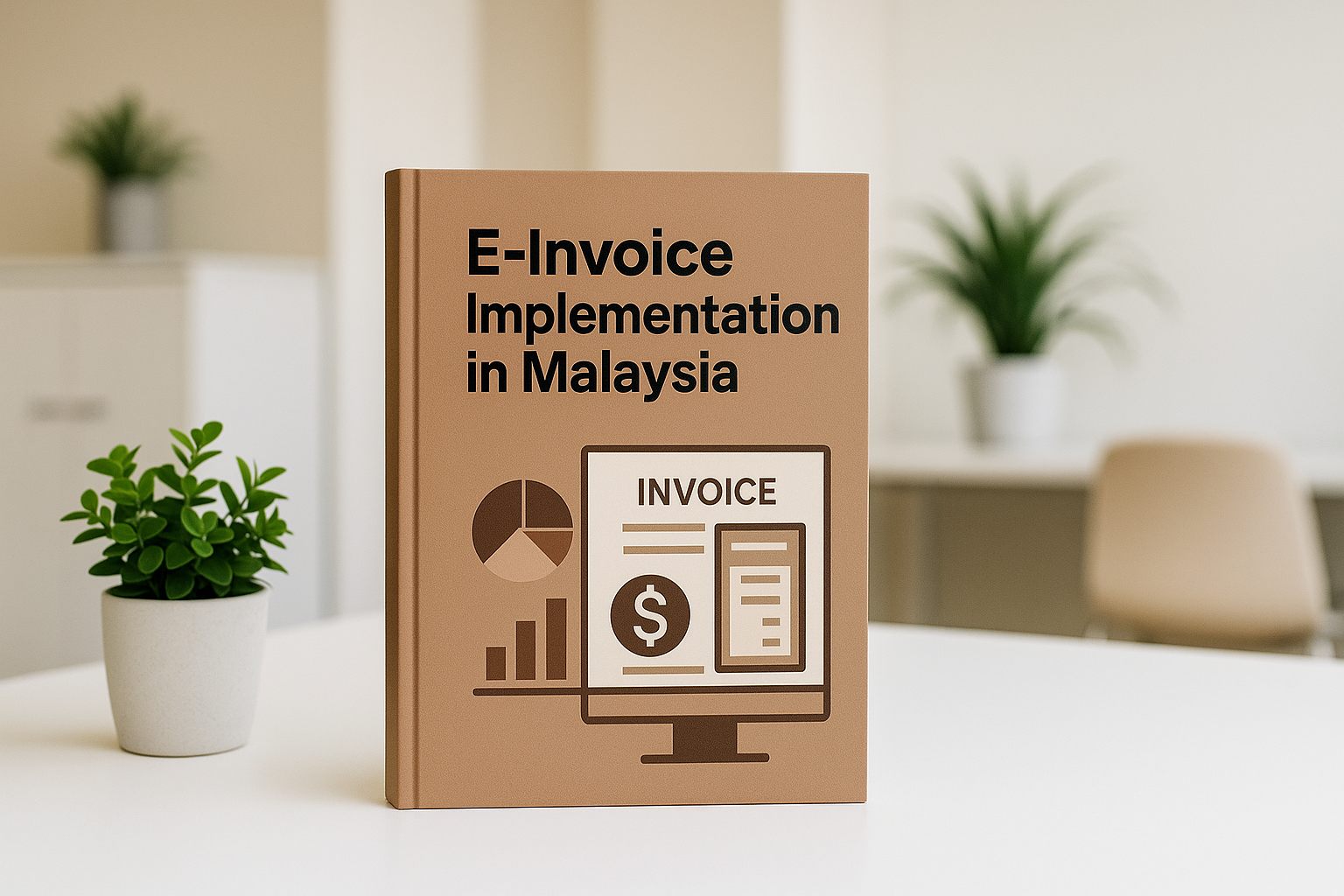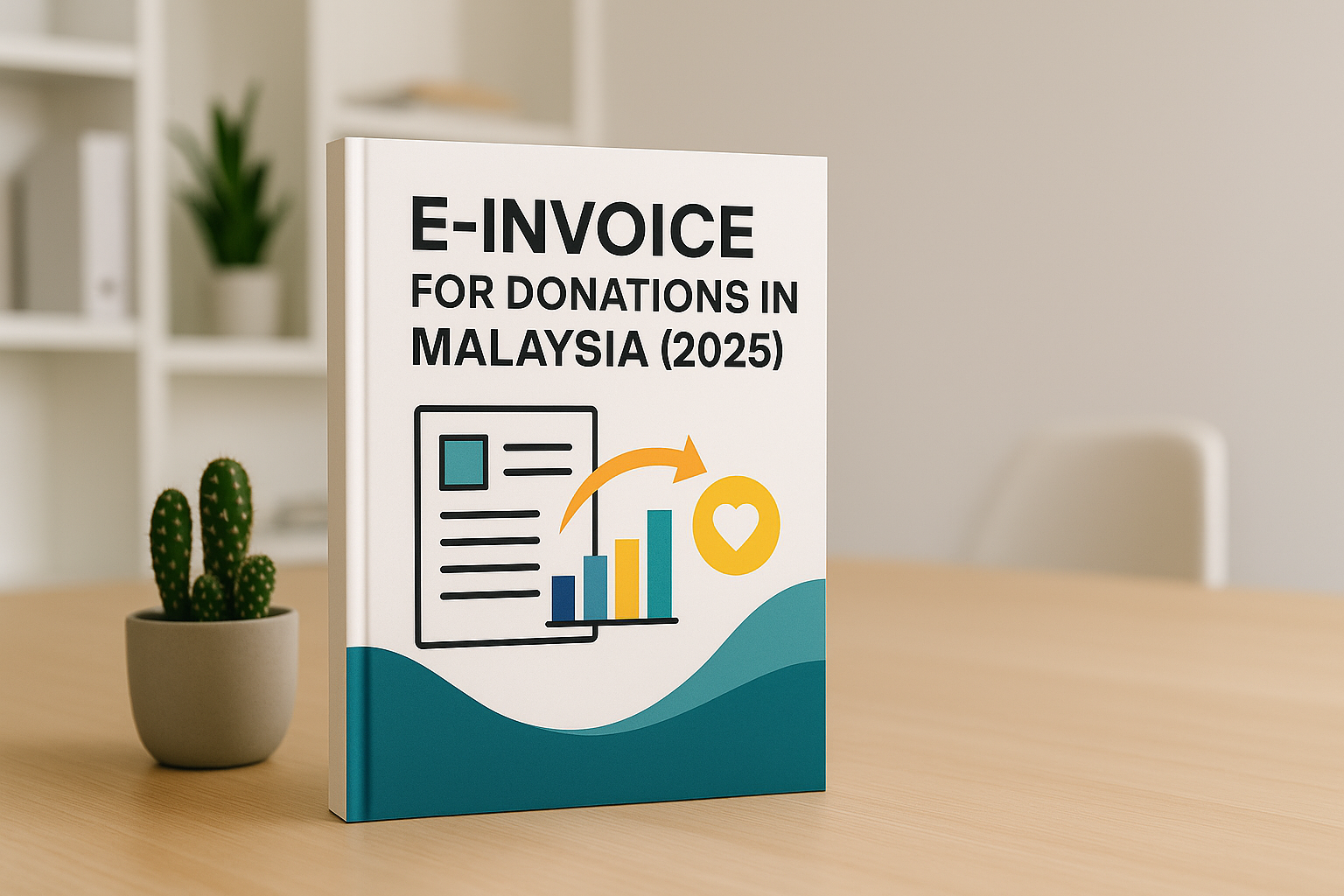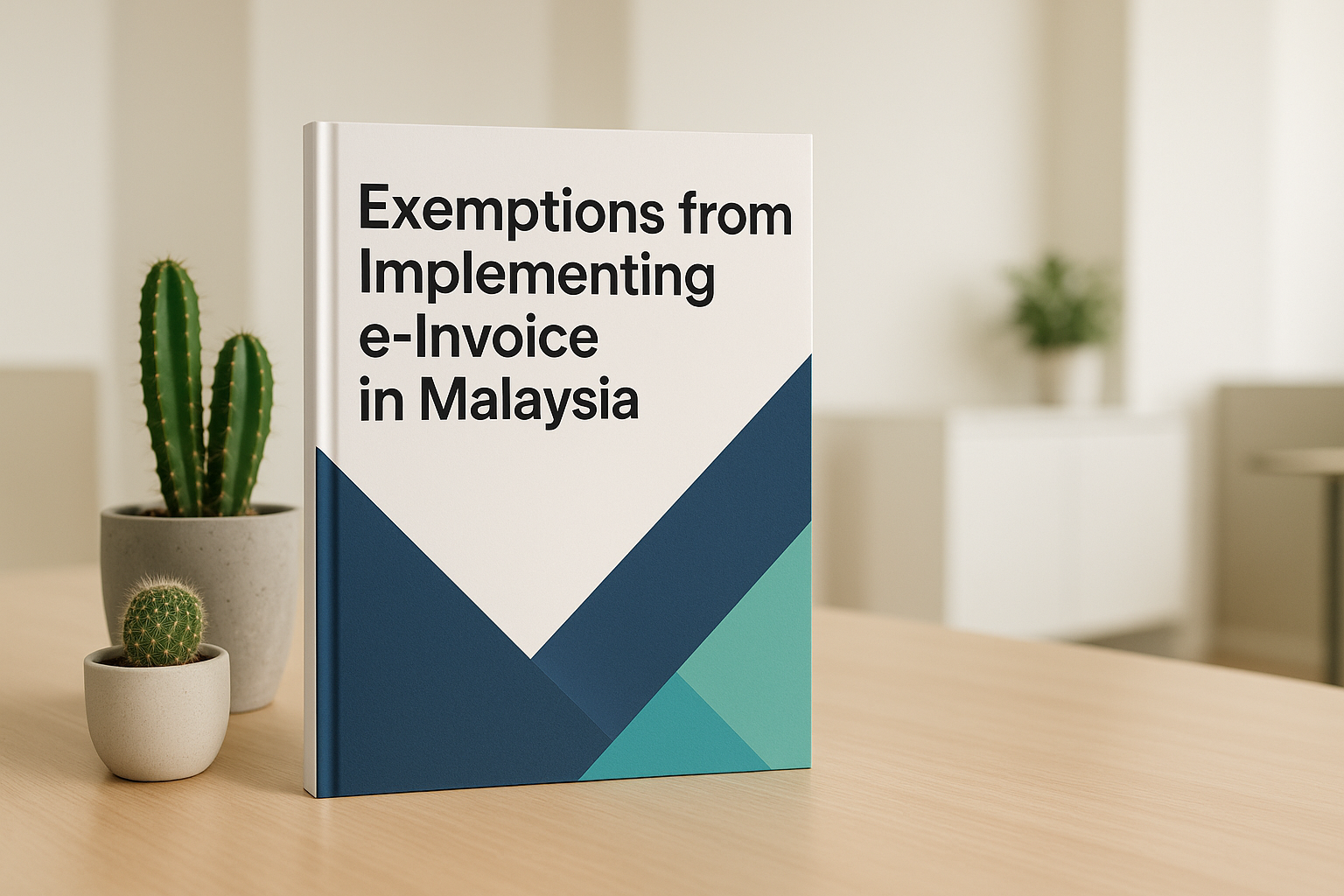E-Invoicing for Construction Contracts in Malaysia: The 2024 Practical Guide
From 2024, Malaysia’s IRBM mandates e-Invoicing for all businesses, including construction, with contract-specific rules for contractors.
This guide helps construction businesses issue compliant e-Invoices, manage retention sums, and identify relevant activities.
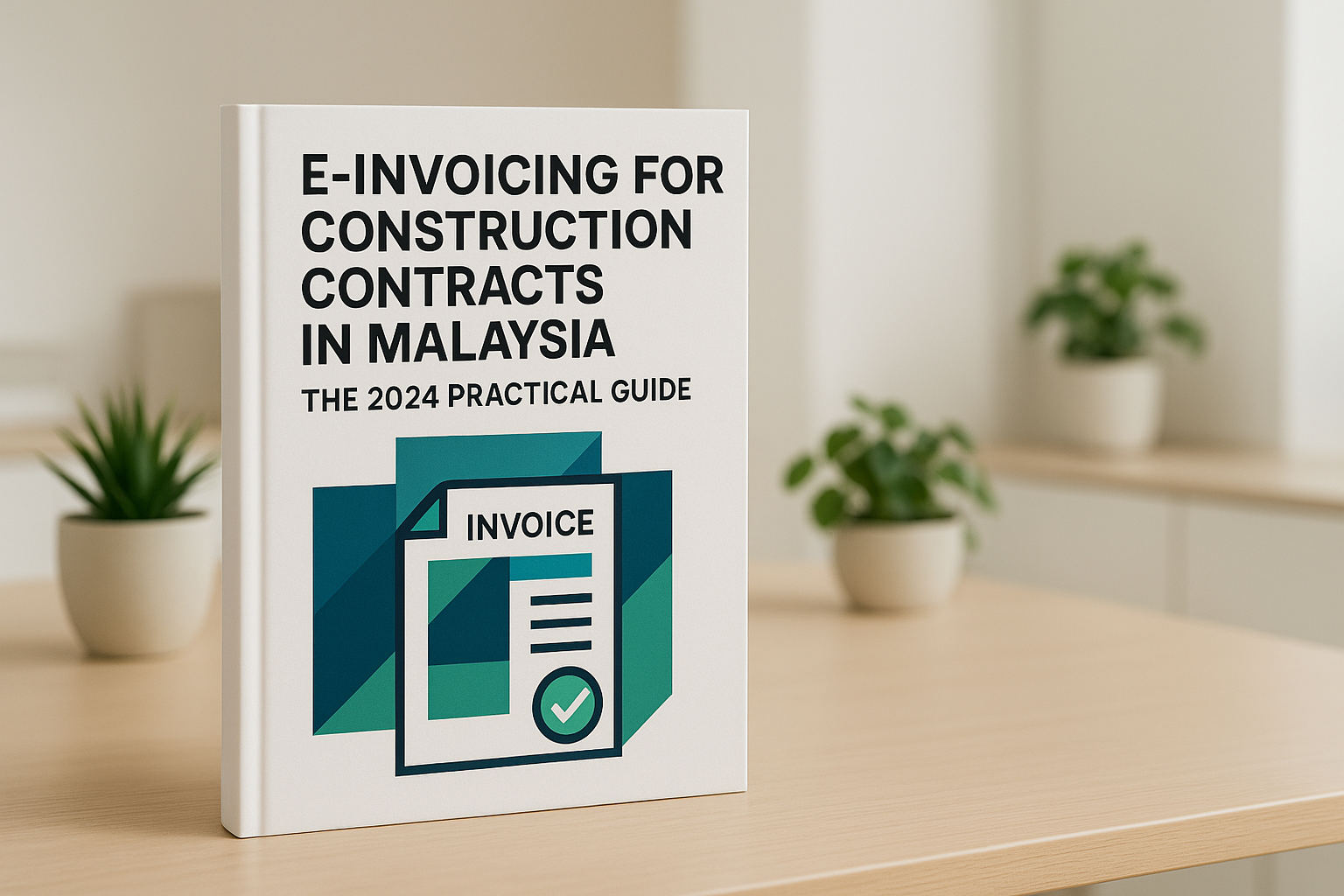
Introduction: Construction Industry Enters the E-Invoice Era
Starting in 2024, Malaysia’s Inland Revenue Board (IRBM) mandates e-Invoicing for all businesses — including the construction sector, which faces one of the most detailed compliance obligations.
For contractors governed under the Income Tax (Construction Contracts) Regulations 2007 [P.U. (A) 276/2007], e-Invoicing isn’t just digital — it’s contract-specific, transaction-bound, and tied to every progress claim.
This article provides a complete walkthrough for construction businesses to understand how to issue compliant e-Invoices, correctly treat retention sums, and identify which activities fall under construction law — using real-world examples and IRBM standards.
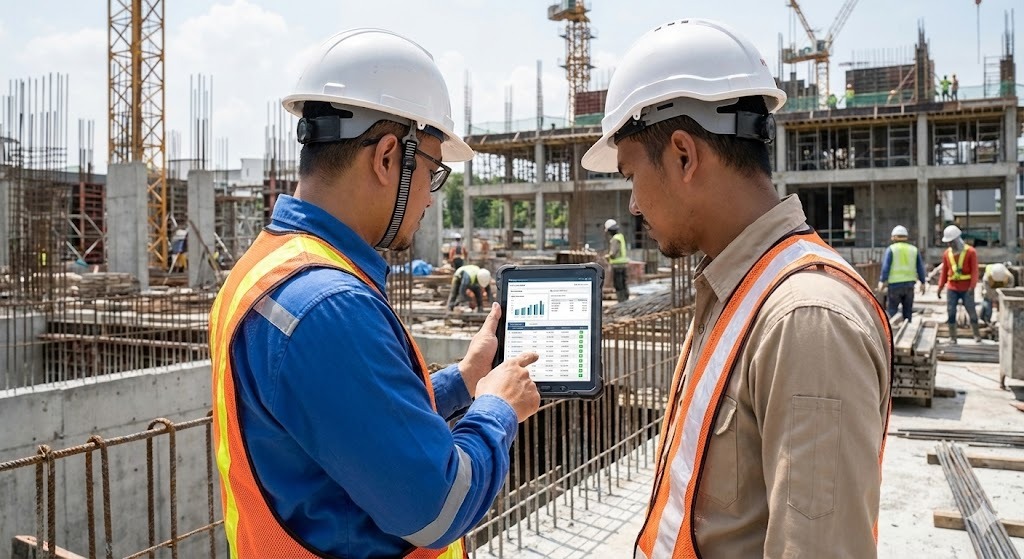
Legal Framework and Scope
Construction Contracts under P.U. (A) 276/2007
The AutoCount Item Batch Module also offers a suite of reports to help you manage your inventory effectively:
These regulations define construction contracts as specifically negotiated agreements to construct an asset or group of interrelated assets, including:
- Buildings
- Infrastructure
- Engineering System
Revenue must be recognized progressively, and invoicing must reflect this reality — per milestone, not in lump sums.
Customer Identification Requirements
Each e-Invoice must include proper buyer credentials, depending on customer type:
| CUSTOMER TYPE | MANDATORY DETAILS |
|---|---|
| Business Entity (Company, Enterprise) | SSM Registration Number + TIN (Tax Identification Number) |
| Malaysian Individual | Either MyKad/MyTentera IO or TIN |
| Foreign Individual | Passport number + TIN, if available |
If TIN or ID is missing or wrong → The e-Invoice will be rejected by MyInvois.
What Activities Qualify as Construction Contracts?
Covered Activities
| CATEGORY | EXAMPLES |
|---|---|
| Building Construction | Condominiums, hospitals, retail malls |
| Infrastructure Works | Highways, MRT tunnels, airport runways |
| MAE Works | Electrical wiring, HVAC, lift systems, CCTV (if part of BOO) |
| Ceiling & Partitioning | Drywall systems, plaster ceilings |
| Civil & Earthworks | Drainage, sewerage, site excavation |
| Design-and-Build | Turnkey projects with design and construction |
| Foundation Systems | Piling, ground slabs, soil stabilization |
| Façade & Cladding | Glass panels, structural glazing |
| Telecom & Data Cabling | Structured cabling during new construction |
| Security Systems | CCTV, access control in new buildings |
Non-Qualifying Activities (Standard E-Invoice)
| ACTIVITY | REASON |
|---|---|
| Curtain & Blind Installation | Furnishing, not structural |
| Retrofit CCTV (in finished building) | Service, not construction scope |
| Repainting | Maintenance, not construction contract |
| Post-construction Cleaning | Support service |
| Landscape Gardening | Non-essential to structural works |
| Office IT Networking | If done separately, not in BOQ |
E-Invoice Lifecycle in a Construction Project
Progress Claim E-Invoicing
Issue one e-Invoice for the full certified value, including retention.
Match e-Invoice to certification number and description.
Example:
- Certified Value: RM1,000,000
- Retention (5%): RM50,000 withheld
- Net Payment: RM950,000
- SST 6%: RM60,000
- e-Invoice issued: RM1,060,000
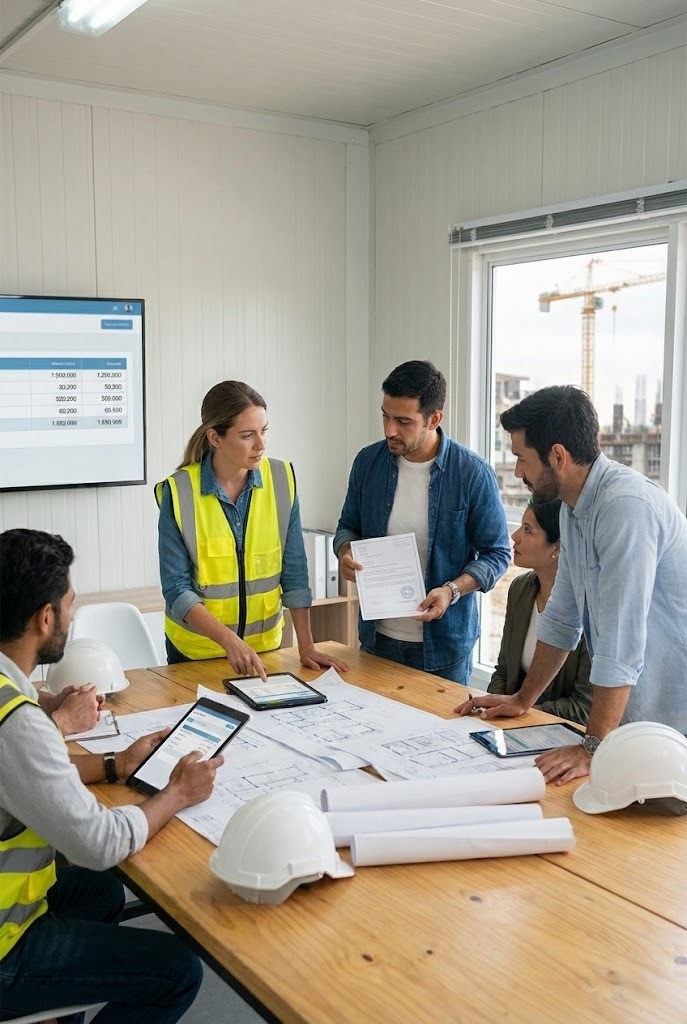
Common Mistakes to Avoid
| MISTAKE | WHY IT'S A PROBLEM |
|---|---|
| Excluding retention from invoice | Violates full value rule |
| Issuing one invoice for multiple progress claims | Consolidation is not allowed |
| No buyer TIN or IC | Rejected by IRBM system |
| Late invoice issuance | Breaks sequence compliance |
Tips for Seamless Compliance
- Use an IRBM-approved e-Invoice software (e.g., AutoCount, SQL
- Link e-Invoicing process to project certification milestones
- Train QS and PM teams to trigger invoices per work stage
- Keep buyer TIN/SSM/IC data centralized and verified
Conclusion: Build Compliance into Every Claim
As Malaysia transitions into mandatory e-Invoicing, construction businesses must move beyond traditional billing practices to embrace a compliance-first approach. Under the Income Tax (Construction Contracts) Regulations 2007, e-Invoicing is not optional — it’s a structural part of how certified work is recognized, reported, and taxed. From progress claims to variation orders, each certified milestone must trigger its own standard e-Invoice, supported by valid buyer information and aligned with IRBM’s real-time validation system.
By understanding which activities qualify as construction contracts, why consolidated e-Invoices are prohibited, and how to properly handle retention sums and VO adjustments, your firm can avoid costly errors, enhance transparency, and secure faster payment cycles. E-Invoicing isn’t just about compliance — it’s about building a stronger, more accountable financial foundation for your projects.

Frequently Asked Questions
Is e-Invoicing mandatory for all construction companies in Malaysia?
Yes. Any construction business that falls under the Income Tax (Construction Contracts) Regulations 2007 [P.U. (A) 276/2007] is required to issue e-Invoices in compliance with IRBM’s 2024 guidelines, according to the applicable revenue phase-in dates.
What type of e-Invoice must a construction company issue?
Construction companies must issue a standard e-Invoice for each certified progress claim or transaction. Consolidated e-Invoices are not allowed under the 2007 Regulations.
Is a separate e-Invoice required when retention money is paid later?
No. Retention sums are part of the original certified supply. You must include the full certified value (including retention) in the first e-Invoice. When the retention is later released, it is considered a payment settlement, not a new supply — no new e-Invoice is required.
What buyer information is required in a construction e-Invoice?
Depending on the client type, you must include:
- Business (Company/Enterprise) - TIN + SSM Registration Number
- Malaysian Individual - Either MyKad or TIN
- Foreign Individual - Passport Number + Foreign TIN (if available)
Missing or incorrect buyer info will cause the e-Invoice to be rejected by IRBM’s MyInvois portal.
Can multiple progress claims be grouped into one e-Invoice?
No. Construction companies under the 2007 Regulations must issue a separate e-Invoice for each certified claim. Grouping claims violates the requirement for accurate revenue recognition.
Are interior works like curtains or furniture considered construction for e-Invoice purposes?
No. These are considered furnishing or services, not construction. You can issue standard e-Invoices (non-progressive) for these, and they do not fall under the 2007 Regulations.
What if the project includes both construction and non-construction elements?
You should:
- Segregate invoices: issue construction e-Invoices for contract-certified works,
- Issue standard service e-Invoices for non-construction items (e.g., cleaning, furniture, IT setup).
What happens if I issue the wrong type of invoice (e.g., consolidated)?
IRBM may:
- Reject your invoice submission.
- Delay validation.
- Trigger a compliance audit.
- Potentially penalize incorrect tax treatment.
It’s crucial to align your invoicing with project certifications and IRBM rules.
Learn E-Invoicing with Our Expert-Led Classes
Ready to master e-invoicing and streamline your business? Join our comprehensive class and get hands-on guidance!

